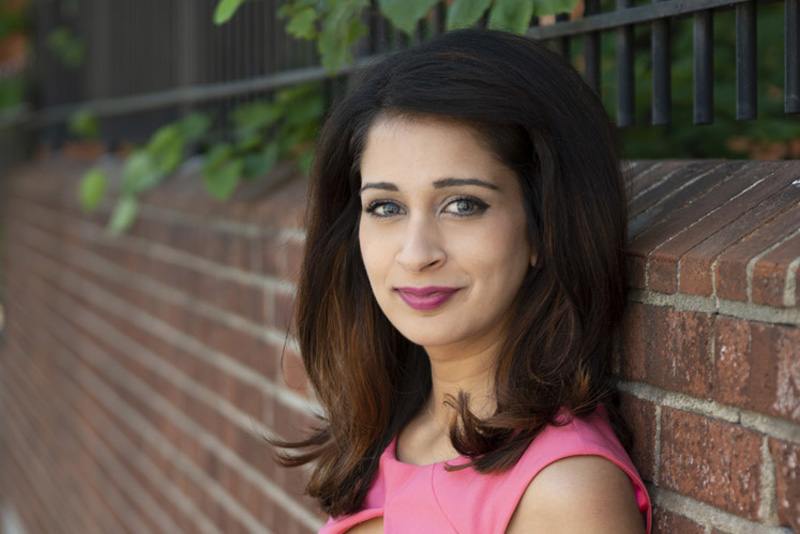 Journalism alumna PJ Randhawa
Journalism alumna PJ Randhawa
“It felt like jumping into a pool where you’re just overwhelmed with sensations,” says TV investigative journalist Prabjot “PJ” Randhawa (CMN MA ’11) of how she felt when she was announced as the winner of a Mid-America regional Emmy® Award in the health and science category.
“I was told it takes several years of being nominated to win, and I only had one nomination. So I really didn’t expect to be called on stage,” she says. But her report on prescription drug errors for NBC affiliate KSDK in St. Louis impressed Emmy voters and viewers alike. The scope and dangers of the problem caught Randhawa and her team’s attention, and interviews with pharmacists confirmed that they were being pressured to fill more prescriptions an hour or be replaced with pharmacists who would.
“We were able to find a man who was struggling with lung cancer, and he was given the wrong prescription. He almost died, and there are so many people out there like this,” she says. “They’re given a settlement and forced to sign a nondisclosure agreement, so we don’t hear about it.”
The value of investigative journalism is its ability to shine a light on hidden problems and make the public aware that they may need to take action. Sometimes these reports get the attention of investigating agencies and legislators, but sometimes the findings go nowhere. When that happens, Randhawa says, “it’s the worst feeling in the world.”
Still, she says, “It’s the daily, little successes that keep you going—getting somebody their money back or making a business change its policy.” Indeed, people who have been taken advantage of often turn to their local TV news station for help. “It is something that we can do that not many people, not many other fields and professionals have the power to do,” she explains.
Randhawa is a Canadian Sikh whose parents, Sukhdev and Kuljinder Randhawa, immigrated to Winnipeg from India almost 50 years ago. She ended up in Chicago because her sister was a doctor at Mercy Hospital and Medical Center. “My parents didn’t want me to live in the U.S. by myself.”
After exceling as an undergraduate at Northeastern Illinois University, Randhawa decided to pursue her master’s in journalism at DePaul. “I got a lot of encouragement from my mother, who wanted me to be the next Oprah,” Randhawa says, but first she would have to overcome her shyness. “I didn’t plan on going into journalism to be in front of the camera, but then I got to DePaul, and I just had a lot of encouragement. Once I was representing an issue, telling a story, the shyness went away—because it wasn’t about me.”
As a Sikh, Randhawa was guided by the main tenet of the religion—everyone is equal—in choosing her career path. “I knew almost instantly I wasn’t going to be doing entertainment news. I wanted the hard stuff, things that anyone would find impactful, relevant,” she says.
Although she is now an award-winning journalist, Randhawa still turns to her mentors at DePaul, Professional Lecturer Rick Brown and Anne Kavanagh (CMN ’81), an adjunct faculty member in investigative journalism. “I knew exactly what I was going into because I was being taught and trained by people who have been there, who saw value in pursuing this path and who didn’t just abandon me once I graduated,” Randhawa says. “I have such wonderful memories of my time in grad school, and I’m so thankful for all the opportunities I had there.”
Also see:
Originally published in Conversations (Spring 2019).